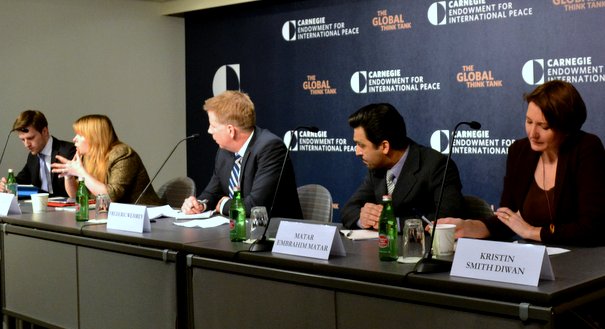Registration
You will receive an email confirming your registration.
Amid a region beset by civil wars and terrorism, the Arab states of the Gulf Cooperation Council are facing growing challenges from an increasingly youthful population, aging rulers, economic pressures, and a new information environment. How well are Gulf regimes responding to these challenges? A panel of Gulf experts explored the region’s shifting landscape and the imperatives for sustainable political and economic reforms.
Jamil De Dominicis
Jamil De Dominicis is a coordinator in the Middle East and North Africa program at Chatham House.
Kristin Smith Diwan
Kristin Smith Diwan is a visiting scholar at the Institute for Middle East Studies at George Washington University and lecturer at American University’s School of International Service.
Jane Kinninmont
Jane Kinninmont is deputy head and senior research fellow in the Middle East and North Africa program at Chatham House.
Matar Embrahim Matar
Matar Ebrahim Matar is a former member of the Bahraini parliament.
Frederic Wehrey
Frederic Wehrey is a senior associate in the Middle East Program at the Carnegie Endowment for International Peace.
